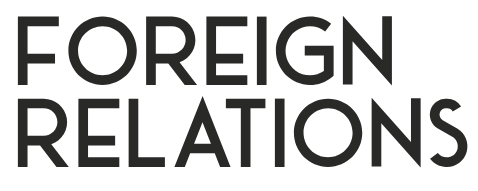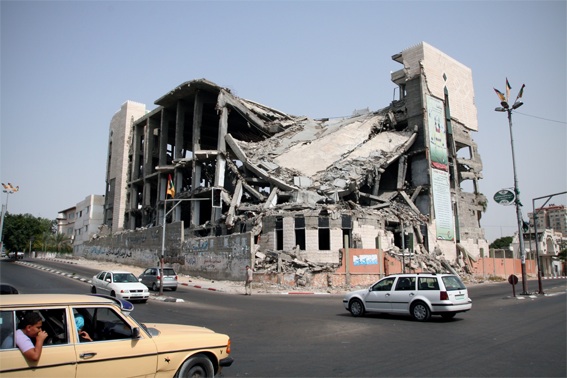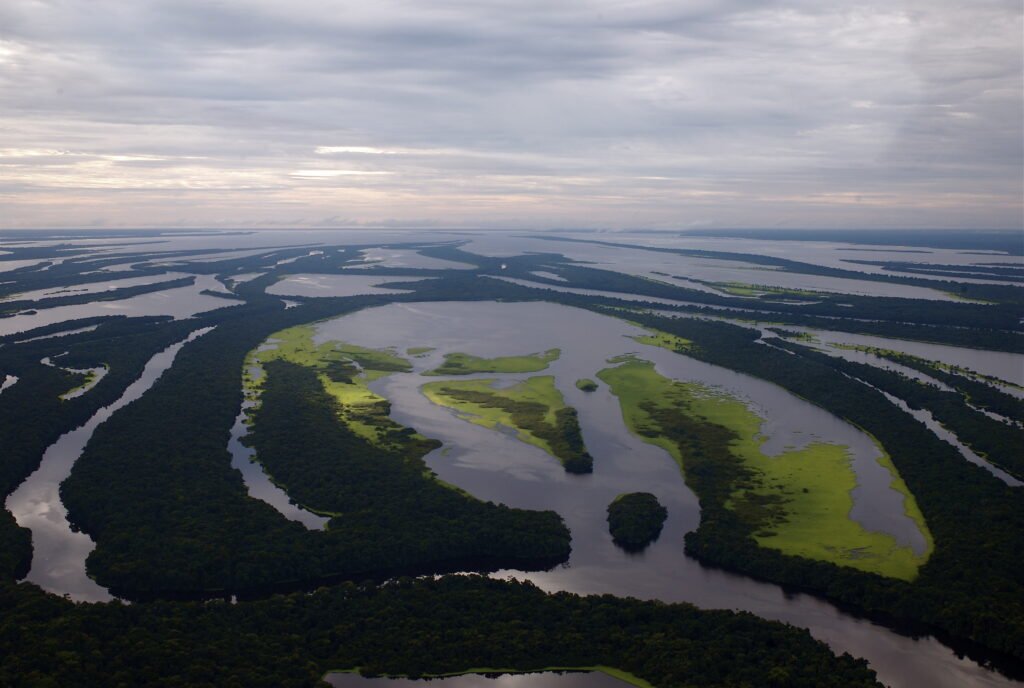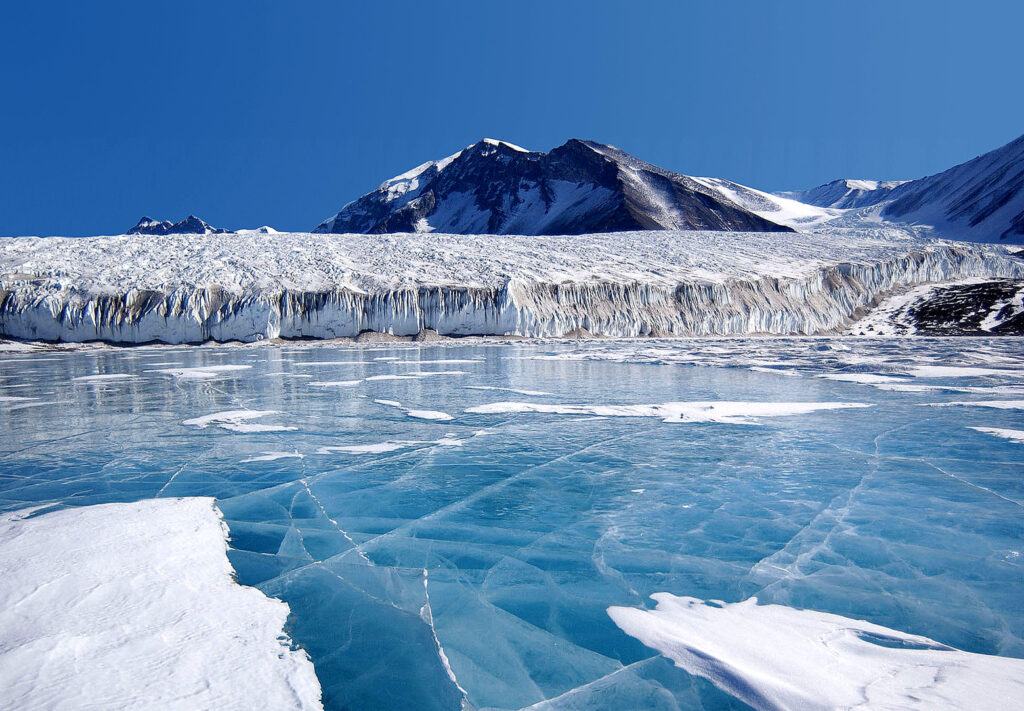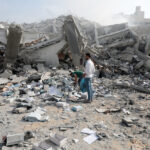Now Reading: The Role of the United Nations High Commissioner for Human Rights
-
01
The Role of the United Nations High Commissioner for Human Rights
The Role of the United Nations High Commissioner for Human Rights
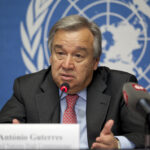
Human rights are one of the fundamental pillars of the contemporary international order, serving as a set of principles and norms that guarantee the dignity, freedom, and equality of all people.
However, ensuring the protection of these rights on a global scale is a constant challenge, especially in the face of war, authoritarianism, inequality, and humanitarian crises. To address these challenges, the United Nations created, in 1993, the Office of the United Nations High Commissioner for Human Rights (OHCHR), the body responsible for overseeing, promoting, and defending human rights at the international level.
The need for a specialized body like the OHCHR became evident after the Cold War and the emergence of new humanitarian crises in the 1990s, such as the conflicts in the former Yugoslavia and Rwanda, which resulted in systematic human rights violations and genocides. Despite the existence of international treaties and conventions, such as the Universal Declaration of Human Rights (1948) and the International Covenants on Civil and Political Rights and on Economic, Social and Cultural Rights (1966), the lack of effective implementation mechanisms made it difficult to hold states and individuals accountable for serious violations.
The OHCHR thus emerged as a response to the challenge of transforming human rights principles into concrete actions. Its role goes beyond merely condemning abuses. The High Commissioner works to strengthen national legislation, train governments and organizations, monitor violations, and support victims. Additionally, the office operates at the intersection of human rights, international security, and development, recognizing that more just and equitable societies are essential for global peace and stability.
Despite its importance, the OHCHR faces significant challenges, such as the resistance of some states to international oversight, the lack of adequate financial resources, and the politicization of human rights issues, which are often instrumentalized for geopolitical interests. Nevertheless, the office plays a crucial role in maintaining justice, promoting respect for international norms, and increasing the visibility of victims of abuses.
This article explores the functioning of the OHCHR, its role within the UN system, its main mechanisms of action, and the challenges it faces in the 21st century. By understanding the work of this body, it becomes possible to assess its relevance and impact in defending human rights and building a more just and equitable world.

Origin and Mandate of the High Commissioner
The creation of the High Commissioner represented a milestone in the consolidation of international efforts to promote and protect human rights. Although the UN already had mechanisms to monitor and promote these rights, the need for a specialized body with greater autonomy and response capacity became evident in the face of increasing violations around the world.
The position of High Commissioner for Human Rights was officially established by the UN General Assembly through Resolution 48/141, adopted in December 1993. This advancement was one of the main outcomes of the World Conference on Human Rights in Vienna, held the same year, which highlighted the need to strengthen the international protection of fundamental rights and ensure the universality, indivisibility, and interdependence of these rights.
The Vienna Conference was a turning point in recognizing that human rights could no longer be relativized by claims of state sovereignty or cultural differences, and that the international system needed a stronger body to address challenges such as genocides, systemic discrimination, torture, and political persecution.

Since its creation, the OHCHR has had a broad and strategic mandate, acting as the principal UN body responsible for ensuring that human rights are implemented in practice and respected worldwide.
Its mandate includes:
- Supervising and promoting the implementation of international human rights treaties, ensuring that states fulfill their obligations under the United Nations.
- Coordinating activities within the UN system, ensuring that human rights are integrated into all policies and programs, including actions aimed at sustainable development, peacekeeping, and combating inequalities.
- Providing technical assistance and legal support to member states, helping to create laws and public policies that strengthen the protection of human rights at the national and regional levels.
- Monitoring, investigating, and reporting human rights violations, documenting abuses and forwarding complaints to bodies responsible for accountability, such as the International Criminal Court.
- Working in partnership with civil society organizations, governments, academic institutions, and regional bodies, strengthening international cooperation in the protection of human rights and expanding society’s participation in defending these fundamental guarantees.
Over the years, the OHCHR has established itself as one of the UN’s principal agents in promoting justice, using its resources to pressure governments, support victims, and strengthen institutions that guarantee human dignity. However, its work continues to face challenges such as the resistance of certain countries, the politicization of human rights agendas, and funding limitations, which underscores the need for continued support from the international community to ensure its effectiveness.
Structure and Functioning of the High Commissioner
The OHCHR operates under the direction of the United Nations High Commissioner for Human Rights, who is appointed by the UN Secretary-General and approved by the General Assembly. This position is responsible for coordinating international efforts to monitor, promote, and protect human rights, ensuring that the norms established in international treaties are respected and implemented by states.
The office’s headquarters are located in Geneva, Switzerland, where the main administrative and strategic activities are conducted. However, to ensure broader and more effective action, the High Commissioner maintains an office in New York, as well as various regional and national representations, which serve as support points for the implementation of its initiatives in different parts of the world. This decentralized presence allows the OHCHR to act closer to communities affected by human rights violations, facilitating the collection of information, dialogue with governments, and cooperation with civil society organizations.
The functioning of the OHCHR is based on various strategies and mechanisms, which ensure its ability to respond to different global challenges. Among the main mechanisms are:
Human Rights Treaty Bodies
These are specialized committees that monitor the implementation of major international human rights treaties. These bodies periodically evaluate reports submitted by member states, analyze complaints from individuals or groups affected by violations, and can issue recommendations to strengthen human rights policies in each country.
Special Procedures of the Human Rights Council
These include special rapporteurs, independent experts, and working groups tasked with monitoring specific themes (such as torture, freedom of expression, the right to housing) or situations in specific countries. These experts conduct investigations, visit countries, engage with governments and civil society, and publish reports with recommendations for the protection of fundamental rights.
Technical Assistance and Capacity Building
The OHCHR provides technical and legal support to governments and national institutions, assisting in the formulation of laws, public policies, and justice systems compatible with international human rights standards. Additionally, it promotes training for public officials, NGOs, and activists, strengthening societies’ capacity to protect and promote human rights internally.
Monitoring and Reporting of Violations
The High Commissioner conducts independent investigations into human rights violations, documenting abuses and publishing detailed reports. These reports play an essential role in international pressure on governments and actors responsible for violations, promoting greater transparency and accountability.
Impact and Challenges
Since its creation, the High Commissioner has been one of the principal international agents in promoting justice, equality, and the protection of fundamental rights. Its work has been essential in denouncing abuses, pressuring governments to adopt more inclusive policies, and strengthening accountability mechanisms. However, the current global context remains challenging, with increased violence, prolonged armed conflicts, and crisis

The world faces a scenario of growing instability, with humanitarian crises in different regions, intensifying wars, state repression against political dissent, and the rise of authoritarian regimes that challenge the international human rights system. Forced displacement has reached record levels, with millions of people fleeing persecution, climate disasters, and armed conflicts. In light of this reality, the work of the OHCHR has become even more crucial, but it also faces significant obstacles, such as:
- Many governments reject international human rights oversight, arguing that such actions violate their sovereignty. In particular, authoritarian and populist regimes seek to undermine the legitimacy of the international system, making it difficult for the OHCHR to access investigations and restricting the work of civil society organizations within their territories.
- The OHCHR relies primarily on voluntary donations from member states, which compromises its ability to respond quickly and effectively to emerging crises. In a context of increasing global challenges, the lack of adequate funding limits the office’s ability to monitor and intervene in human rights violations around the world.
- The world continues to be a stage for brutal wars and repression, such as the prolonged conflicts in Syria, Yemen, Ukraine, Sudan, and Palestine, as well as violent insurgencies in various regions of Africa and Asia. In these situations, the OHCHR faces difficulties not only in documenting and denouncing violations, but also in ensuring that victims receive protection and legal support. Additionally, violence against refugees and migrants continues to rise, with massive human rights violations at international borders.
- Within the UN, disputes between countries hinder the adoption of effective measures to combat serious violations. Often, priorities are defined based on geopolitical interests, rather than the severity of the abuses committed. Moreover, major powers use their veto power in the UN Security Council to block investigations and sanctions against strategic allies, undermining the credibility of the international human rights system.
Despite these challenges, the OHCHR remains an essential pillar in the fight for human dignity. Its work strengthens awareness of violations, pressures governments to adopt reforms, and provides legal and technical support to victims and activists. However, for its impact to be even greater, a collective effort is needed to strengthen the office’s funding, reduce the politicization of human rights, and ensure that the protection of fundamental rights remains a non-negotiable international priority.
Conclusion
The High Commissioner is a central pillar of the international system, playing a decisive role in defending human dignity and ensuring respect for fundamental rights worldwide. Through its monitoring, technical assistance, and investigative mechanisms, the OHCHR drives state accountability, ensuring that governments fulfill their obligations to the international community and respond to the legitimate demands of their populations for justice and protection against abuses.
For human rights to be fully consolidated, it is essential to strengthen international regimes and multilateral cooperation, as well as a genuine commitment by states themselves to strengthen their internal institutions. The primary responsibility for protecting human rights lies with national governments, which must invest in the development of strong, effective, and democratic institutions capable of ensuring social justice, lasting peace, and collective prosperity.
In a world still facing humanitarian crises, prolonged armed conflicts, forced migrations, and systematic violations of fundamental rights, the role of the OHCHR is more necessary than ever. However, for its work to achieve concrete and lasting results, it is essential that states fully assume their responsibilities to their own populations, investing in institutional development, promoting social justice, and ensuring the construction of peaceful and prosperous societies. Collaboration between committed governments and a strong international system, guided by the principles of human rights, is crucial for a more just and equitable world.
Stay Informed With the Latest & Most Important News
-
 01Pepe Mujica: The Rich Legacy of the Peasant Who Knew How to Make Concessions to the Market Without Losing Ideological Direction
01Pepe Mujica: The Rich Legacy of the Peasant Who Knew How to Make Concessions to the Market Without Losing Ideological Direction -
 02Democracy in the Face of Ecological Collapse
02Democracy in the Face of Ecological Collapse -
 03New modelling reveals full impact of Trump’s ‘Liberation Day’ tariffs – with the US hit hardest
03New modelling reveals full impact of Trump’s ‘Liberation Day’ tariffs – with the US hit hardest -
 04New Pope Possesses Attributes That Could Expand Vatican’s Diplomatic Influence in Global Geopolitics
04New Pope Possesses Attributes That Could Expand Vatican’s Diplomatic Influence in Global Geopolitics -
 05What’s so special about Ukraine’s minerals? A geologist explains
05What’s so special about Ukraine’s minerals? A geologist explains -
 0650 years later, Vietnam’s environment still bears the scars of war – and signals a dark future for Gaza and Ukraine
0650 years later, Vietnam’s environment still bears the scars of war – and signals a dark future for Gaza and Ukraine -
 07China’s new underwater tool cuts deep, exposing vulnerability of vital network of subsea cables.
07China’s new underwater tool cuts deep, exposing vulnerability of vital network of subsea cables.
